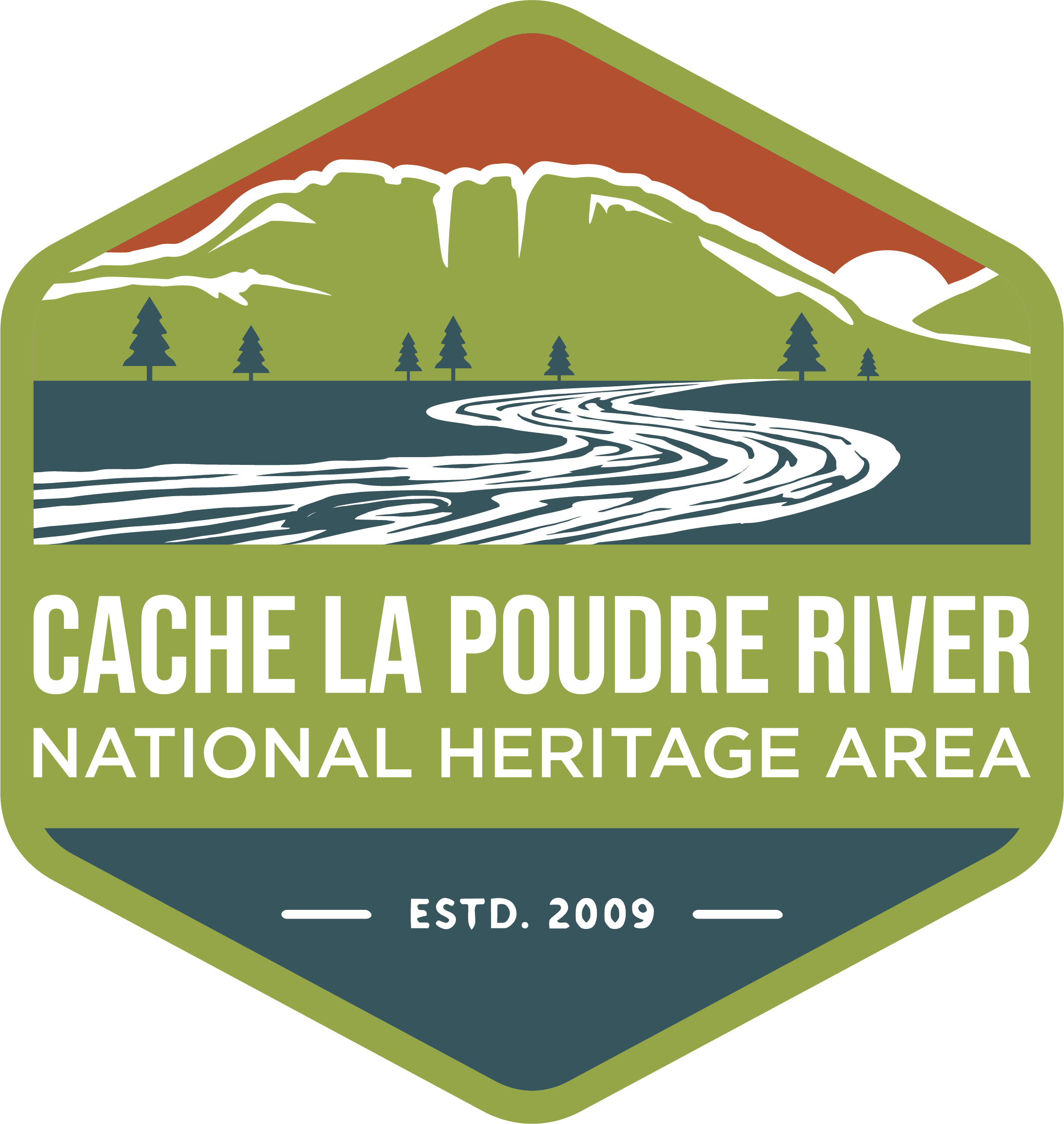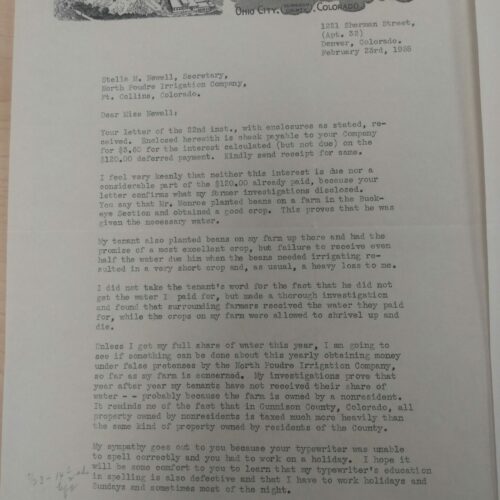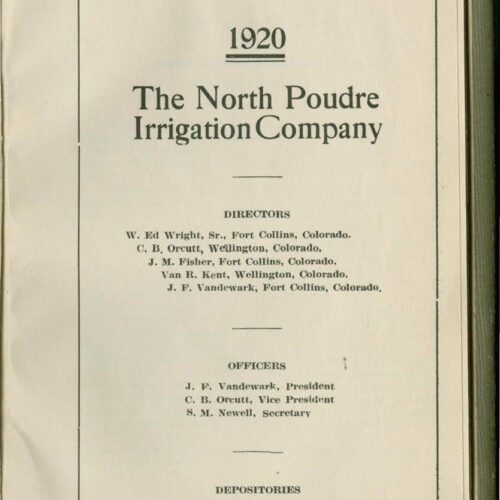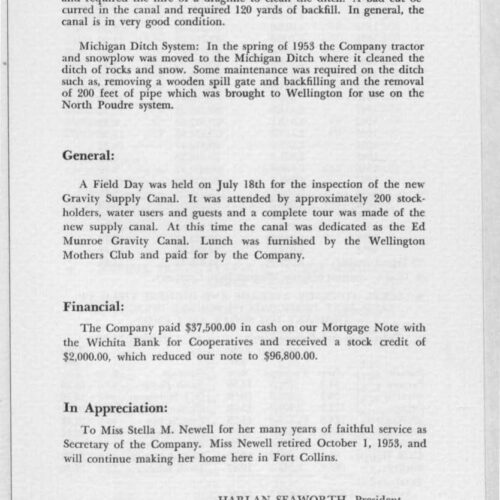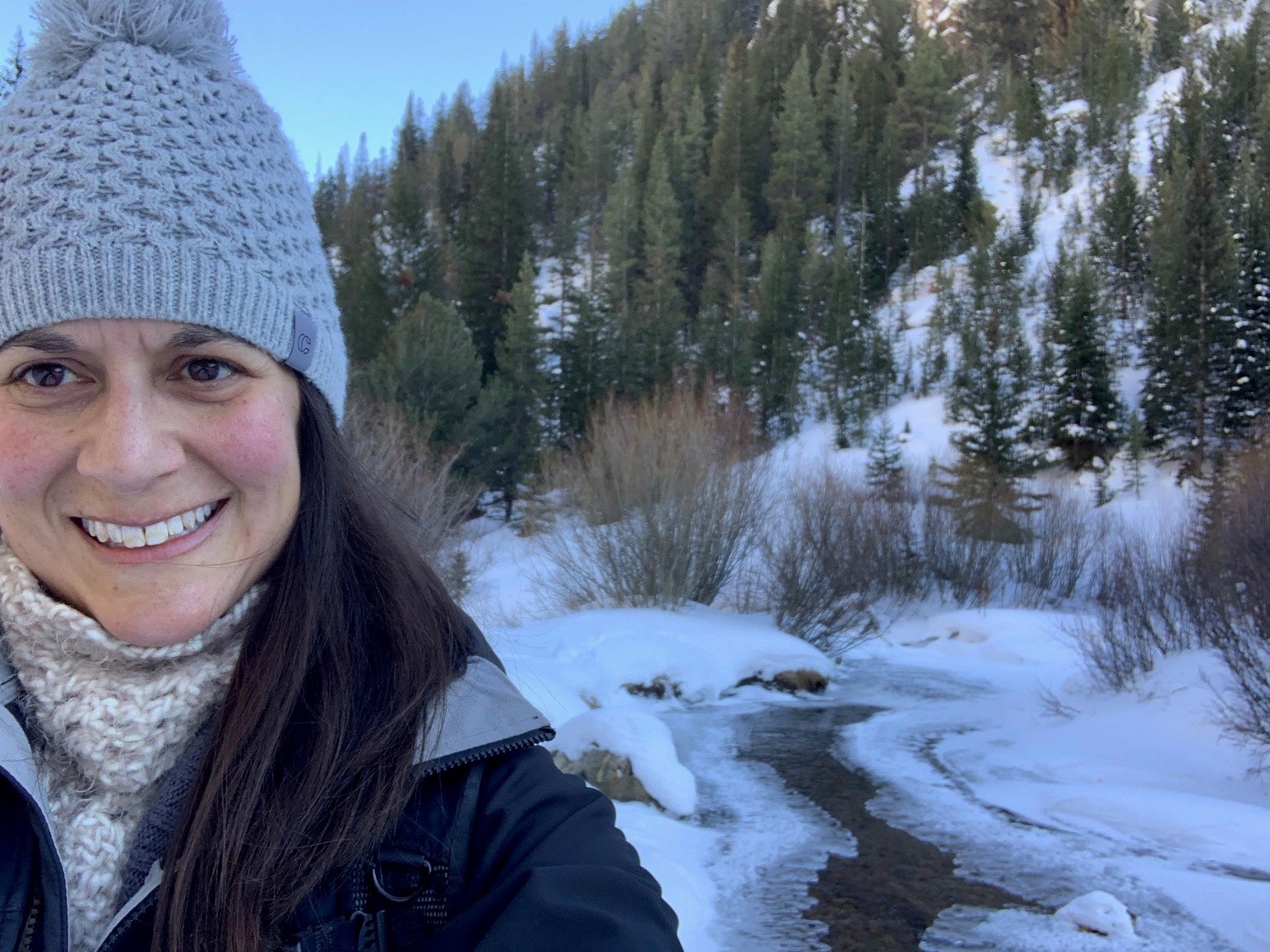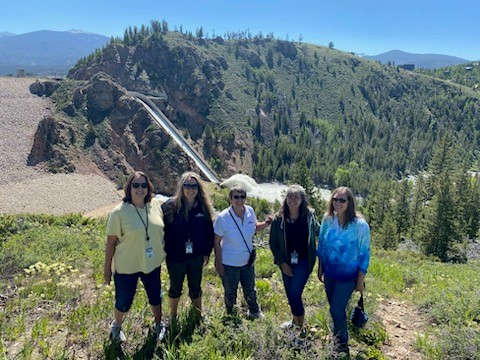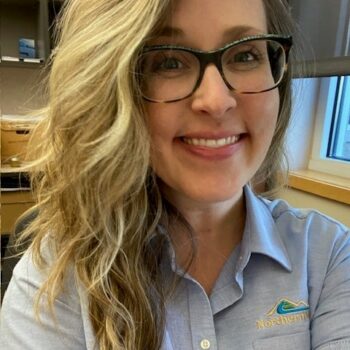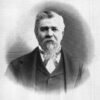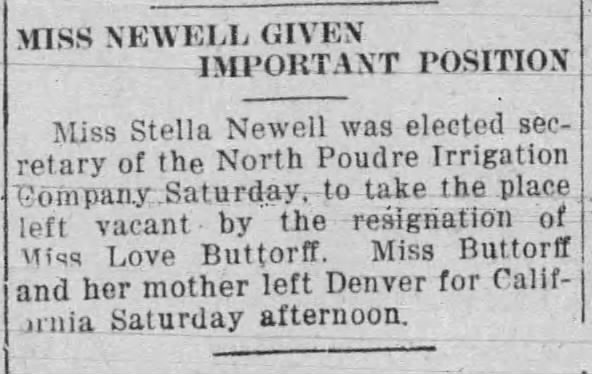
They say behind every good man is a woman, but in the case of the hundreds relying on the water of the North Poudre Irrigation Company it was just one woman—Miss Stella M. Newell.
Stella Newell, born in 1885, grew up near St. Louis, Missouri. After contracting tuberculosis, she moved to Fort Collins in 1914, a common move when clean air of the West was thought to cure ailing lungs. Less common, in 1914, was a young woman striking out on her own. For six years Stella worked a variety of jobs—even spending time as postmistress of Coalmont, a rural community near Walden, Colorado—but in 1920, she was offered a job that changed her life, secretary and treasurer of the North Poudre Irrigation Company.

1933 Audit, p.161. North Poudre Irrigation Company Records. Water Resources Archives, Fort Collins, Colorado.
The North Poudre Irrigation Company, made up of nineteen reservoirs, hundreds of miles of ditches, and hundreds of shareholders, was (and is) vital to farming in Northern Colorado. Shortly after farmers began settling here in the 1870s, they realized rainfall would not provide enough water to grow crops. As a solution, they began constructing a complex network of irrigation reservoirs and ditches, founding companies to build and maintain them, including North Poudre in 1901. Running such a company was no small task, so in 1920 they hired Stella.

Fort Collins Courier June 194, 1920. P.3. Accessed on newspapers.com
Stella was also very involved in the Fort Collins community. She organized the Delphian Society (think book club on steroids), was a member of the Order of the Eastern Star (women’s branch of the Masons), attended the First Presbyterian Church, and was an early and lifelong member of the Business and Professional Women’s Club. While Stella never married, she was loved by many, appearing frequently as an attendee in social gatherings, trips, and wedding parties! She rented a plethora of apartments around Fort Collins, even living in the Northern Hotel for years!
Sadly, the poor health that brought Stella west followed her all her life and in 1953, after thirty-three years in office she resigned from the irrigation company due to illness. She died in 1956 and is buried in Grandview Cemetery in Fort Collins.
You might be wondering, “Gee for such an important person, where’s her photo?” We’d like to know the answer to that too! Despite combing several archives and sources, Cache NHA staff and local archivists have been unable to find a photo of Stella! What we’ve discovered is that despite decades of critical work, her tenure is rarely mentioned or remembered and there is no known photograph of her. In a sad way, this is a bit poetic. A woman who was in many ways taken for granted remains in some ways invisible even to us. Stella offers us a small look at the often-hidden work women did to build industries and communities across the West.
This story was compiled from research conducted by Cache NHA staff including records at the Fort Collins Archives, Colorado State University Water Resource Archives–North Poudre Irrigation Company Records, on Colorado Historic Newspapers Collection/Newspapers.com, and U.S. Census Records.
Resources
Image 1
1933 Audit, p.161. North Poudre Irrigation Company Records. Water Resources Archives, Fort Collins, Colorado.
Image 2
Annual Reports, 1941-1965, image 110. North Poudre Irrigation Company Records. Water Resources Archives, Fort Collins, Colorado.
https://hdl.handle.net/10217/192915
Image 3
Annual Reports, 1909-1920, image 193. North Poudre Irrigation Company Records. Water Resources Archives, Fort Collins, Colorado. https://hdl.handle.net/10217/186350
Image 4
Correspondence. February 1935. WNPR Box 39, Cor. 1935 Jan-Mar. North Poudre Irrigation Company Records. Water Resource Archives, Fort Collins, CO. https://hdl.handle.net/10217/187557
Image 5
Fort Collins Courier June 194, 1920. P.3. Accessed on newspapers.com
